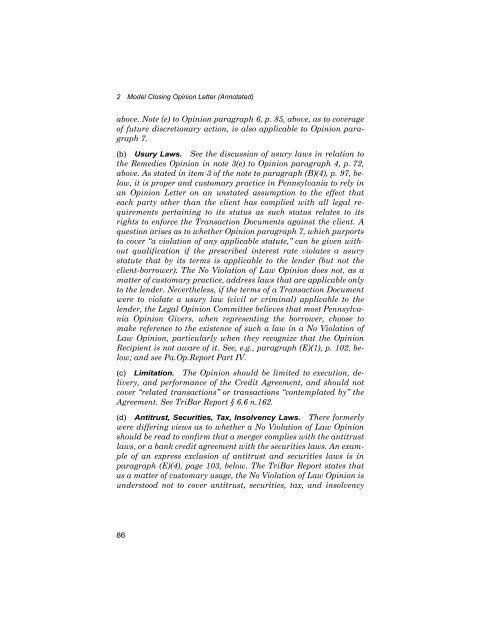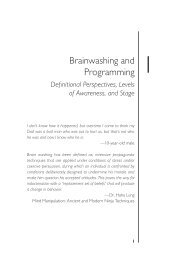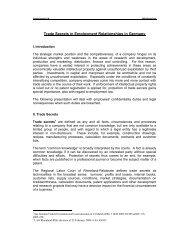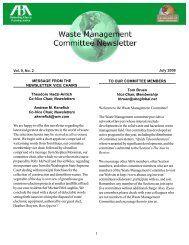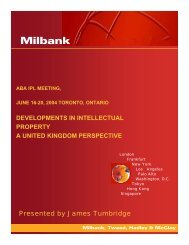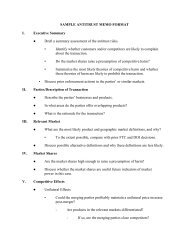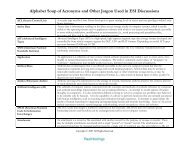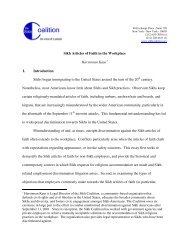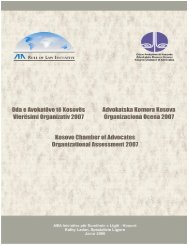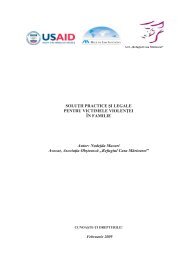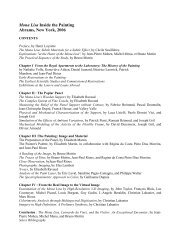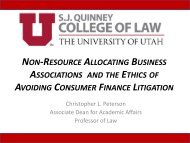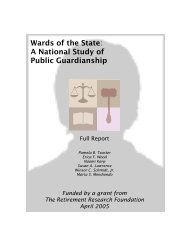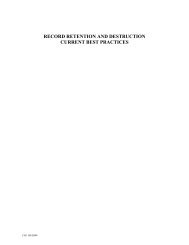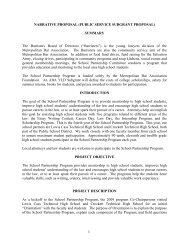Model Closing Opinion Letter (Annotated) - American Bar Association
Model Closing Opinion Letter (Annotated) - American Bar Association
Model Closing Opinion Letter (Annotated) - American Bar Association
You also want an ePaper? Increase the reach of your titles
YUMPU automatically turns print PDFs into web optimized ePapers that Google loves.
2 <strong>Model</strong> <strong>Closing</strong> <strong>Opinion</strong> <strong>Letter</strong> (<strong>Annotated</strong>)<br />
above. Note (e) to <strong>Opinion</strong> paragraph 6, p. 85, above, as to coverage<br />
of future discretionary action, is also applicable to <strong>Opinion</strong> paragraph<br />
7.<br />
(b) Usury Laws. See the discussion of usury laws in relation to<br />
the Remedies <strong>Opinion</strong> in note 3(e) to <strong>Opinion</strong> paragraph 4, p. 72,<br />
above. As stated in item 3 of the note to paragraph (B)(4), p. 97, below,<br />
it is proper and customary practice in Pennsylvania to rely in<br />
an <strong>Opinion</strong> <strong>Letter</strong> on an unstated assumption to the effect that<br />
each party other than the client has complied with all legal requirements<br />
pertaining to its status as such status relates to its<br />
rights to enforce the Transaction Documents against the client. A<br />
question arises as to whether <strong>Opinion</strong> paragraph 7, which purports<br />
to cover “a violation of any applicable statute,” can be given without<br />
qualification if the prescribed interest rate violates a usury<br />
statute that by its terms is applicable to the lender (but not the<br />
client-borrower). The No Violation of Law <strong>Opinion</strong> does not, as a<br />
matter of customary practice, address laws that are applicable only<br />
to the lender. Nevertheless, if the terms of a Transaction Document<br />
were to violate a usury law (civil or criminal) applicable to the<br />
lender, the Legal <strong>Opinion</strong> Committee believes that most Pennsylvania<br />
<strong>Opinion</strong> Givers, when representing the borrower, choose to<br />
make reference to the existence of such a law in a No Violation of<br />
Law <strong>Opinion</strong>, particularly when they recognize that the <strong>Opinion</strong><br />
Recipient is not aware of it. See, e.g., paragraph (E)(1), p. 102, below;<br />
and see Pa.Op.Report Part IV.<br />
(c) Limitation. The <strong>Opinion</strong> should be limited to execution, delivery,<br />
and performance of the Credit Agreement, and should not<br />
cover “related transactions” or transactions “contemplated by” the<br />
Agreement. See Tri<strong>Bar</strong> Report § 6.6 n.162.<br />
(d) Antitrust, Securities, Tax, Insolvency Laws. There formerly<br />
were differing views as to whether a No Violation of Law <strong>Opinion</strong><br />
should be read to confirm that a merger complies with the antitrust<br />
laws, or a bank credit agreement with the securities laws. An example<br />
of an express exclusion of antitrust and securities laws is in<br />
paragraph (E)(4), page 103, below. The Tri<strong>Bar</strong> Report states that<br />
as a matter of customary usage, the No Violation of Law <strong>Opinion</strong> is<br />
understood not to cover antitrust, securities, tax, and insolvency<br />
86


